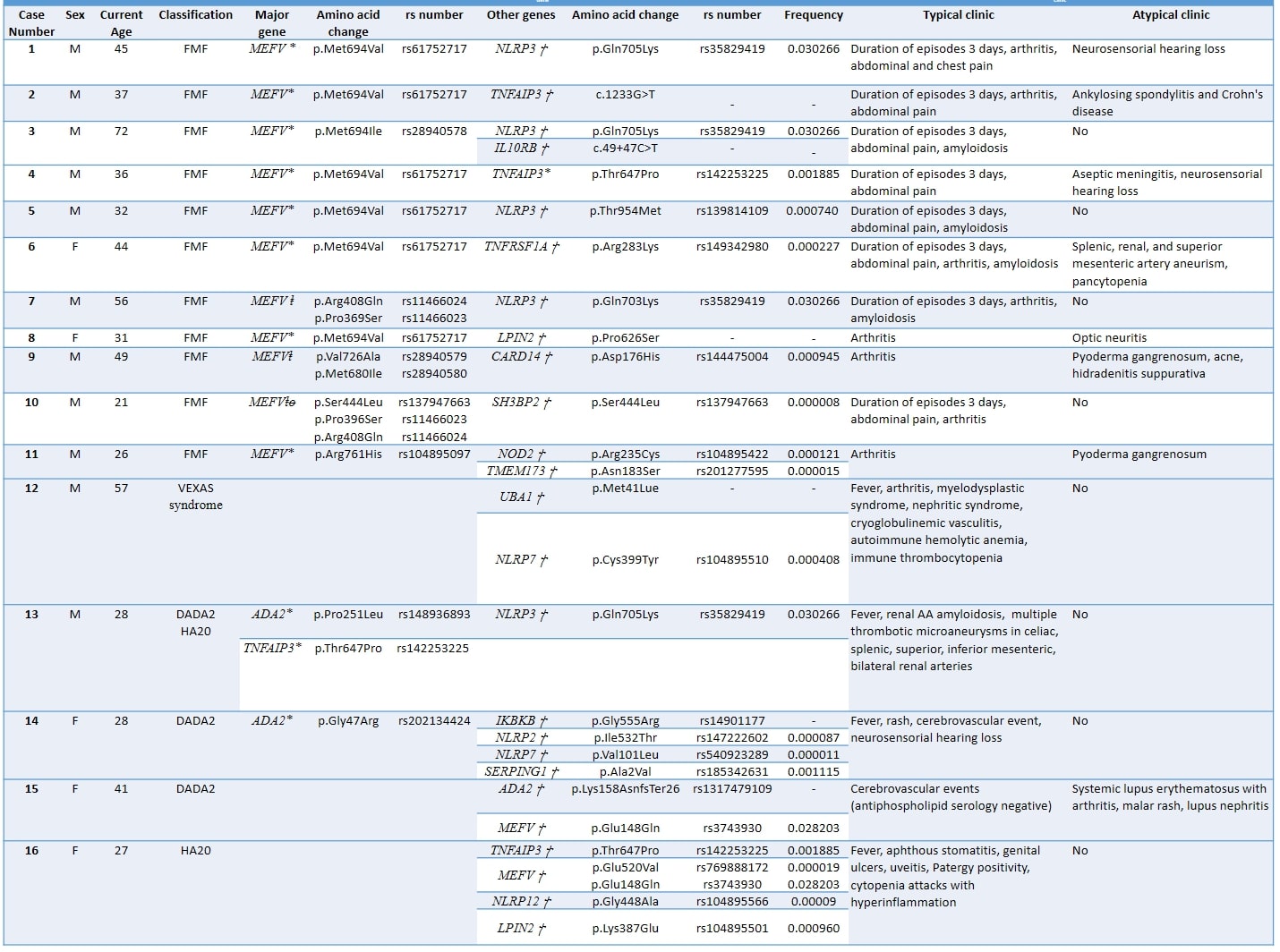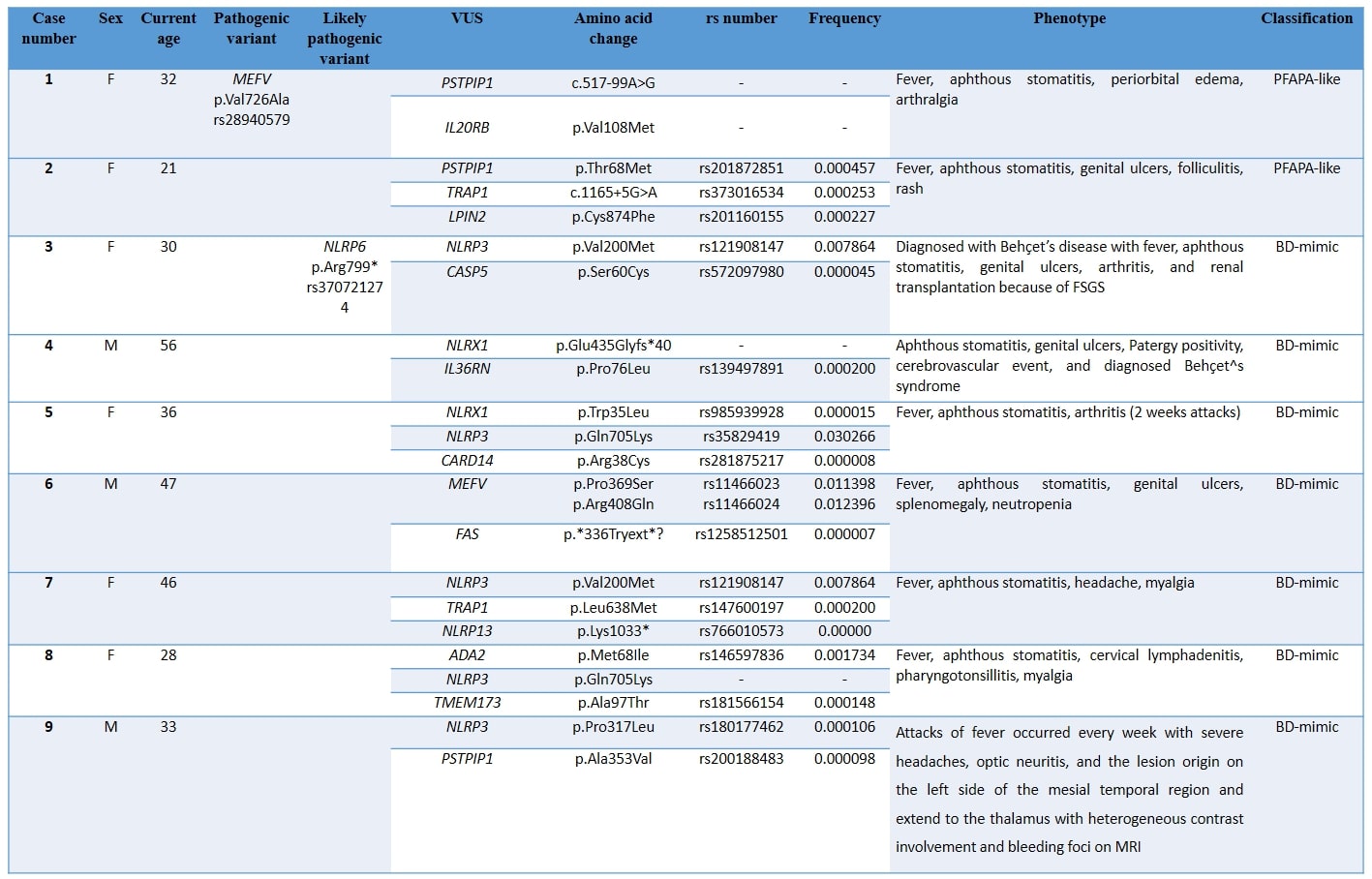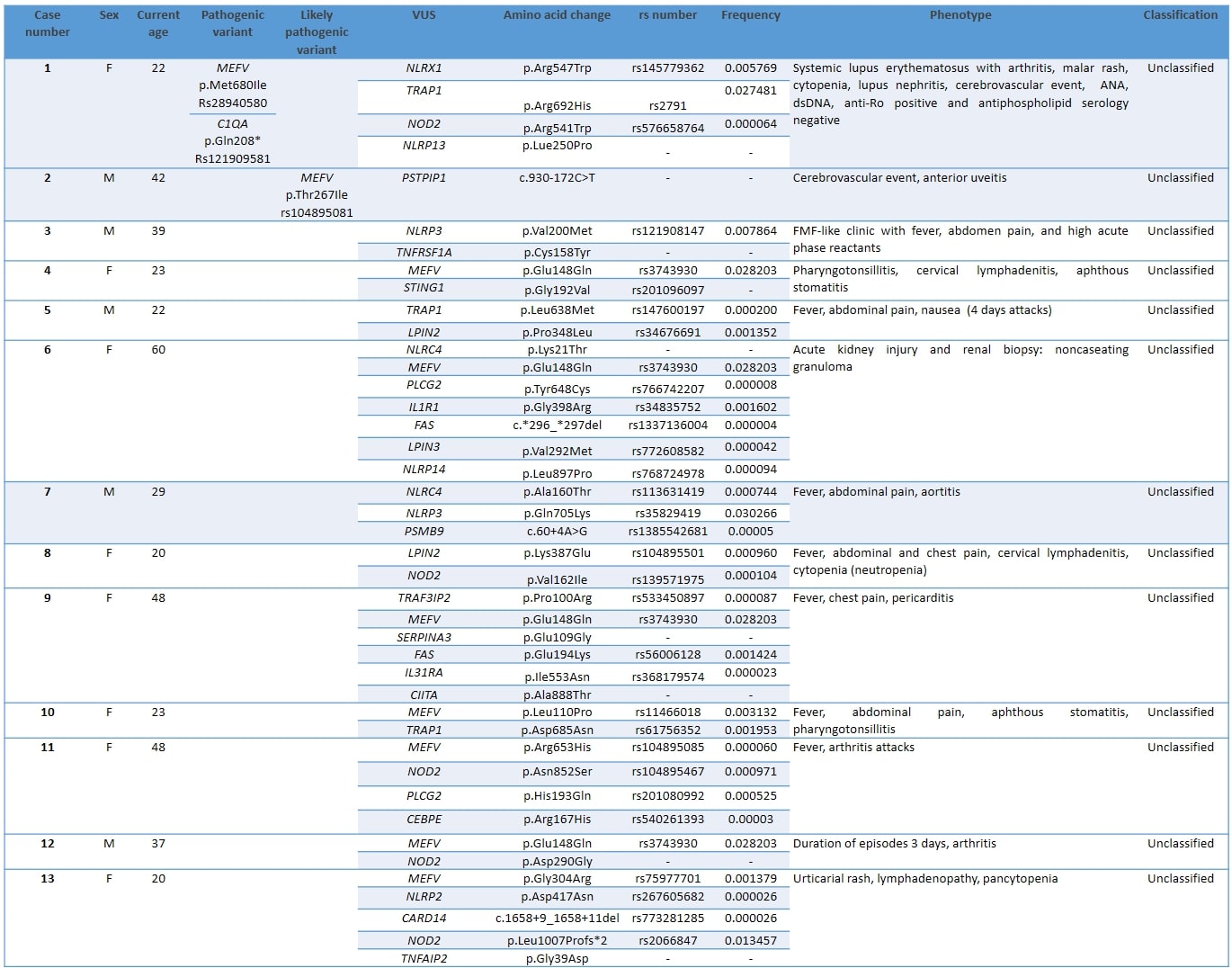Session Information
Date: Sunday, November 12, 2023
Title: (0252–0282) Miscellaneous Rheumatic & Inflammatory Diseases Poster I
Session Type: Poster Session A
Session Time: 9:00AM-11:00AM
Background/Purpose: Background: Systemic autoinflammatory disorders (SAIDs) are including a group of diseases, which are associated with genetic variations resulting in dysregulation of innate immunity and hyperinflammatory response. Pathogenic and likely pathogenic variants in certain genes have been linked to a defined phenotype, but screening of more patients with some autoinflammatory features has been revealing several variants of uncertain significance (VUS), and also patients with variants in more than one autoinflammatory gene. We herein investigated the relationship between phenotype and genotype of the patients who were screened for autoinflammatory genes and identified as carriers of variants in ³2 genes in a tertiary referral center.
Methods:
Methods: Charts of the patients who had been referred to our center with a potential diagnosis of autoinflammatory disorder between April 2019 and January 2023 and the results of their genetic analyses were evaluated. All patients had the results of genetic screening of 22 genes, which were associated with different autoinflammatory disorders, and analyses covered the exons and 10 base pair intron borders of the selected genes and were carried out by using the Ion Torrent platform and Illumina platform.
Results:
Results: We evaluated 146 referred patients (60 male, 85 female, mean age 41.0±12.6, range 19-82), and 38 of them (26%) identified as having ≥2 gene variants. By using the recent classification criteria for the autoinflammatory recurrent fevers,1 eleven out of 38 (28.9%) patients were classified as FMF. Among the patients with the MEFV mutations, the presence of additional variants may have had an effect on the phenotype such as sensorineural hearing loss in those with NLRP3 VUS. Since the Gattorno et al. criteria were aiming only 4 common SAIDs, 5 (13.2%) patients could be diagnosed with VEXAS syndrome (n=1), deficiency of ADA2 (DADA2, n=2), A20 haploinsufficiency (HA20, n=1), DADA2 and HA20 combination (n=1) (Table 1). The remaining patients were grouped as having the PFAPA-like (n=2) and Behçet disease-mimic (n=7) according to their dominant phenotype (Table 2). Thirteen (34.2%) patients could not be classified into any groups (Table 3). Two of these cases had pathogenic and likely pathogenic variants with VUS, and others had between 2-7 different VUS combinations.
Conclusion: Discussion: The criteria developed by Gattorno et al. have some limitations in daily practice since the set includes only CAPS, FMF, TRAPS, and MKD and is not validated in adults. Although those patients with pathogenic variants could be classified by using them, the contribution of additional variants to the phenotype needs further investigation. On the other hand, an important group of adult patients may have unclassified systemic autoinflammatory features mainly associated with a combination of VUS in different genes, and this “mixed autoinflammatory disorder-MAID” phenotype needs to be followed carefully for the evaluation of long-term prognosis.
To cite this abstract in AMA style:
Amikishiyev S, Kalaycı T, Soltanova L, Yalçınkaya Y, Artim-Esen B, Inanc M, Sahin A, Ekmekci S, Abacı N, Ozturk S, Palanduz S, Gul A. Phenotypes of the Patients with More Than One Autoinflammatory Gene Variant: Classified Diseases and Mixed Autoinflammatory Disorders (MAID) [abstract]. Arthritis Rheumatol. 2023; 75 (suppl 9). https://acrabstracts.org/abstract/phenotypes-of-the-patients-with-more-than-one-autoinflammatory-gene-variant-classified-diseases-and-mixed-autoinflammatory-disorders-maid/. Accessed .« Back to ACR Convergence 2023
ACR Meeting Abstracts - https://acrabstracts.org/abstract/phenotypes-of-the-patients-with-more-than-one-autoinflammatory-gene-variant-classified-diseases-and-mixed-autoinflammatory-disorders-maid/



